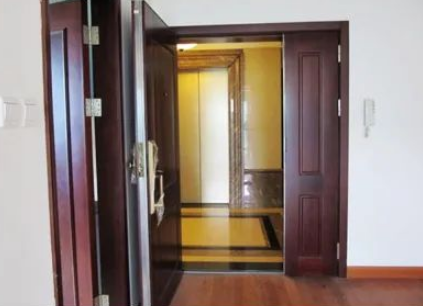Interior Harmony
“The house relies on its form for the body, water for blood and qi, land for flesh, grass and trees for hair, houses as clothing, and doors and windows as decorations。 If it is like this, it will be solemn and elegant, which is the best omen。” This is how ancient people humanized homes, explaining that proper interior design is crucial for both the house and its occupants。
Why do some houses feel refreshing and invigorating upon entry, while others feel stifling and uneasy? It lies in the difference between good and bad feng shui。 Spacious, bright, and well-coordinated interiors are the best choice for living, representing ideal feng shui layout。 Professional feng shui consultation is recommended to adjust indoor and outdoor feng shui configurations for harmonious living, wealth growth, and family prosperity。Below are several types of houses with negative feng shui that require immediate adjustment:
1。 Front door directly facing elevator or staircase – it’s a direct conflict。

Normally, a home is where qi and life energy gather。 Now, facing directly with elevator or staircase, the life force inside will be completely absorbed – considered a major taboo。 A remedial solution is to place a screen or feng shui barrier at the entrance。
2。 Front door and balcony in a straight line。
Due to unobstructed front and back views, one can see the entire length from front door to Balcony。 A proverb says: “Front open, back open – wealth and health will be gone。” Additionally, draft from Passage winds will cause illnesses。 A remedial solution is to place a screen or feng shui barrier。
3。 If the front door faces a long corridor, this is also a sha chi。
A longer corridor means more negative impact on home – called “heart-piercing sword” layout。 Without a screen at the entrance, it’s detrimental to residents。
4。 Sharp corners in house
Homes with sharp corners are considered bad feng shui as they disrupt the flow of energy and cause health issues for occupants。
5。 Bathrooms or kitchens at the center of the house
Having bathrooms or kitchens in the central area of a house blocks the flow of positive qi, leading to wealth loss and family conflicts。
6。 Front door facing stairs or ramp
This is another direct conflict that disrupts energy flow and causes health issues for residents。
7。 Lack of feng shui elements in the living area
A well-balanced home should have all five feng shui elements (metal, wood, water, fire, earth) to maintain harmony and prosperity。
8。 Overly dark or dim interiors
Bright lighting is essential for positive energy flow; overly dark spaces attract negative energies and cause health issues。
These are just a few examples of common feng shui issues in residential properties。 Professional feng shui consultation is highly recommended to identify specific problems and implement remedial solutions tailored to your home’s unique layout。
Remember: A harmonious living environment is essential for a happy and healthy life!
Leave a Reply